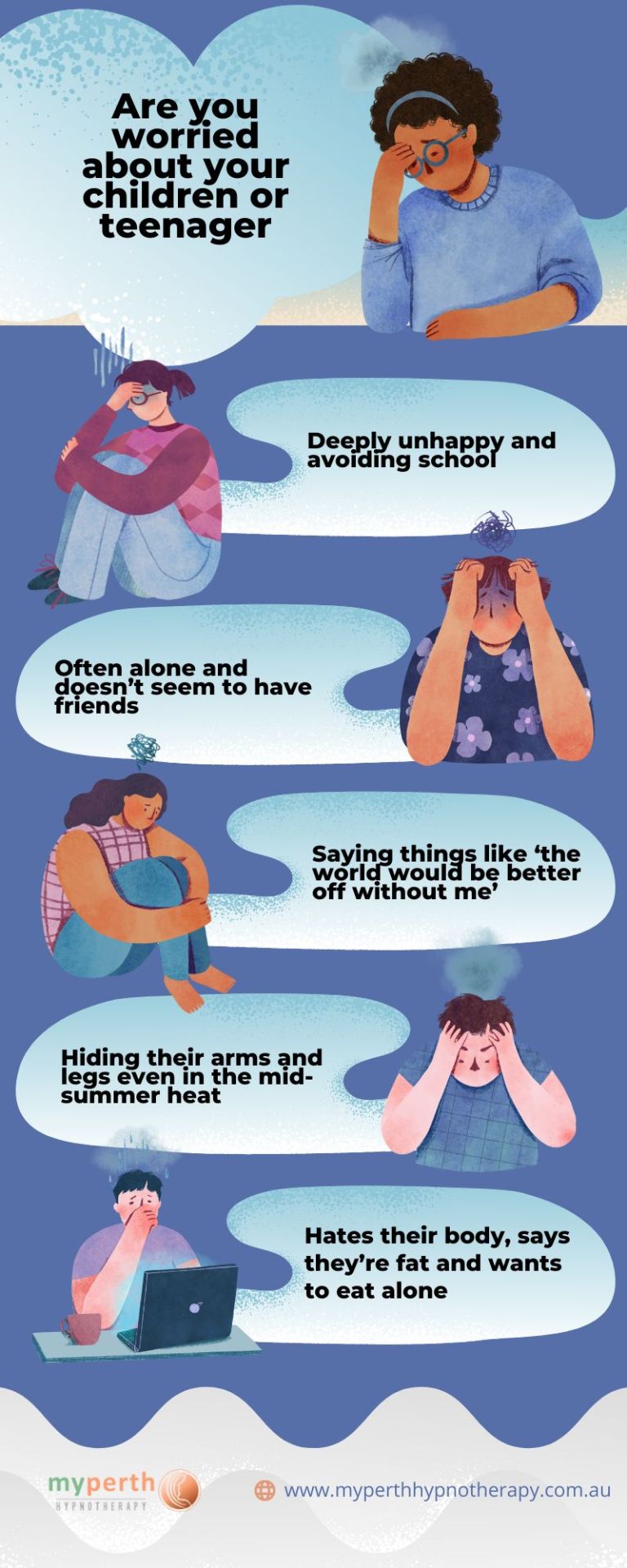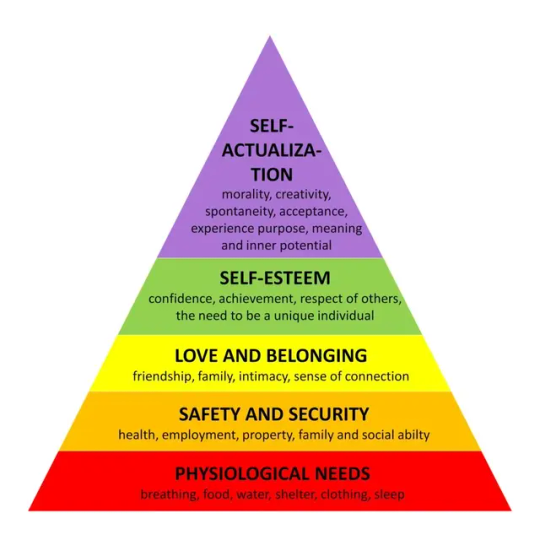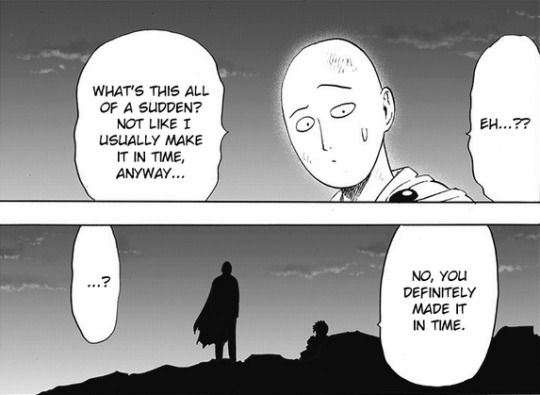#ptsd hypnotherapy
Explore tagged Tumblr posts
Text
We are excited to offer your clients the opportunity to attend our Clinical Hypnotherapy Online Live Group Sessions For Smoking, Weight Loss, and PTSD.
Find out more - https://bit.ly/3qwEsAQ
The events will be held on Zoom beginning on Tuesday, June 13th at 6:00 PM Pacific PDT:
Stop Smoking Hypnotherapy Clinic - Tuesday, June 13, 2023 at 6:00PM Pacific
Weight Loss Hypnotherapy Clinic - Wednesday, June 14, 2023 at 6:00PM Pacific
PTSD Release Hypnotherapy Clinic - Thursday, June 15, 2023 at 6:00PM Pacific
Clinical Hypnotherapy is an effective treatment for PTSD (Posttraumatic Stress Disorder). As you know, PTSD is a mental health condition that is triggered by a traumatic event. Symptoms of PTSD include flashbacks, nightmares, anxiety, and depression.
Find out more - https://bit.ly/3qwEsAQ
A study published in the Journal of Clinical Psychology found that Clinical Hypnotherapy is an effective treatment for PTSD. The study found that hypnotherapy can help reduce the symptoms of PTSD and improve the quality of life for PTSD patients.

4 notes
·
View notes
Text
Effective Hypnotherapy for PTSD in Gold Coast - Heal with Brad Buchanan Hypnotherapy
If you're struggling with PTSD, hypnotherapy for PTSD in Gold Coast can offer the support and healing you need. Brad Buchanan specializes in using hypnosis to help you overcome trauma, reduce stress, and regain emotional balance. Take the first step toward recovery and healing today by visiting Brad Buchanan Hypnotherapy for PTSD.
0 notes
Text
Psychotherapist
Website: http://www.alexdixontherapy.com/
Address: 340 N Main St #206, Plymouth, MI 48170
Phone: +1 734-536-2444
Alex Dixon is a licensed master social worker specializing in the treatment of trauma. Alex’s understanding of trauma is rooted in science (how traumatic experiences impact the brain) and what Alex has observed in his practice. Although scientific methods drive the use of evidence-based trauma therapy models, Alex’s clinical observations demonstrate that an integrative approach of science and holistic care improve consistency of effective treatment. Alex’s passion to explore many different methods of treatment stems from his own personal therapeutic work. Alex’s personal therapeutic journey led to the creation and use of holistic practices that effectively treat symptoms of trauma. Alex’s professional training and personal therapeutic work include EMDR, Hypnosis and Hypnotherapy, CBT, Psychedelic-assisted therapies, psychedelic integration, shamanistic practices, somatic therapies and breathwork practices.
#Psychotherapist in Plymouth#Hypnotherapy in Plymouth#trauma therapy clinic in plymouth#personal therapy near me#counseling near me#panic attack#anxiety attack#anxiety treatment#hypnosis near me#hypnotherapy#trauma therapy#ptsd treatment#therapist near me#Psychotherapist near me#Trauma treatment near me
0 notes
Text

PTSD, Depression & Anxiety Therapist Austin Texas ! Somatic Work
Paige Newberry Bartholomew is PTSD, depression and anxiety therapist in Austin Texas. She uses Hypnotherapy and Somatic work for lasting results. Free Consultation and Sliding Scale.
#PTSD therapist#Anxiety therapist#Depression therapist#Hypnotherapy#Somatic work#Trauma Therapy#Trauma Therapist#Trauma Therapist near Me
1 note
·
View note
Text
#trauma counselling central coast#hypnotherapy for trauma#trauma therapy sydney#hypnotherapy for ptsd#hypnosis for childhood trauma#hypnosis ptsd therapy#hypnotherapy for trauma central coast#hypnosis therapy for ptsd#ptsd psychologist near me#trauma counselling sydney#ptsd counselling#trauma therapist sydney#trauma psychologist near me#trauma hypnotherapy#hypnotherapy for dealing with trauma#hypnotherapy trauma#hypnotherapy for childhood trauma#ptsd treatment inner sydney#ptsd counselling near me#trauma hypnosis near me#trauma hypnosis norwest#ptsd hypnosis near me#hypnosis for trauma near me#hypnotherapy for complex ptsd#trauma hypnotherapy near me
0 notes
Text
#best hypnotherapy treatment#diego#hynotherapy treatment#parent your mind#san diego#hypnotherapy service#hypnotherapist#ptsd#Hypnotherapy for PTSD#health#hypnotherapy#hypnotherapy coaching
0 notes
Text
Are you worried about your children or teenager?

If you feel something’s wrong, then it’s time to seek help. The teenage years can leave parents feeling shut-out and lost, not knowing if it’s ‘just a phase’ or if there’s something deeper going on.
When you look back on your own teens it’s easy to think you’re over reacting, but today’s teenagers face a completely different set of challenges. Which is why you need a different set of tools to reach them.
More Update Please visit - https://myperthhypnotherapy.com.au/services/children-teenagers/
#my perth hypnotherapy#therapy#naet therapy#allergy therapy#hypnotherapy near me#hypnotherapy for anxiety#hypnotherapy#hypnosis#ptsd therapy#psychologist hypnotherapist near me#child hypnotherapy near me#coaching#trauma from childhood#counseling#reiki#r smoking perth#hypnotherapy rockingham#past life regression perth
0 notes
Text
Perception bias, round 2 Director's cut, Saigenos edition!
(or basically, how my brain jumps into another topic only loosely related to the original ask)
Thank you @itsmaferart For the wonderful ask again. :)
Warning: Long post ahead
-*-
Perception bias also serves another more...sinister purpose for Saitama. Psychological conditioning. There is potential evidence for deprivation of basic needs, conditioning for violence for protection and subliminal messages for suggestion, among other things.

Being deprived of all these needs is akin to mental torture. But so is facing all of the underlying issues at once via hypnotherapy and cognitive behavioural therapy if the patient is sufficiently dysfunctional in a societal setting like Saitama happens to be. Especially if the therapies are performed...poorly.
CBT has shown to be the most effective intervention for people exposed to adverse childhood experiences in the form of abuse or neglect Criticism of CBT sometimes focuses on implementations (such as the UK which may result initially in low quality therapy being offered by poorly trained practitioners. However, evidence supports the effectiveness of CBT for anxiety and depression. Evidence suggests that the addition of hypnotherapy as an adjunct to CBT improves treatment efficacy for a variety of clinical issues. Post Traumatic Stress Disorder (PTSD) and its symptoms have been shown to improve due to implementation of hypnotherapy, in both long and short term. As research continues, hypnotherapy is being more openly considered as an effective intervention for those with PTSD.
In short, in order to heal mentally, Saitama may need to face mental torture because he has such strong willpower and such strong mental barriers shielding his vulnerabilities on a basic primal need. There only needs to be a sufficient trigger.
ONE sent Saitama home to restore his energy levels...because he's going to sorely need them for the upcoming confrontation.
Empty Void's ability to genjutsu people casually and cause parallel shifts in the reality and using these to abuse emotional dependencies is like a loaded Chekov's gun on Saitama's forehead. Because Saitama has been roleplaying to re-learn his emphatic skillset after he had suffered too much mental trauma.
That's why early Saitama did not even bat an eye when Beefcake killed his own brother but now he's empathizing with Hamukichi. That's what I call character progression.

Even a compulsive planner like Saitama cannot predict what will happen because he's not familiar with Blast's maladaptive coping methods deep down. Blast is great at masking because they are coping methods so he can bear with his guilt and other issues and just wants to do things on his own, without assistance.

This causes Saitama's perception bias about Blast who seems capable and emphatic, when he is in actuality unscrupulous and amorally indifferent if you really, REALLY study him hard enough.
My bro casually invited Saitama, who is sensitive to aggression, hostility and violence, to watch literal torture of human turned monsters, with an actual smile on his face. And justifying it with his end justify the means philosophy. That's awfully too close to being sadistic and cruel when you consider the ramifications.
They say "love is blind" and Saitama is wearing some rose tinted glasses on because Blast is straight up shady, but he does not see it because he's probably identifying with Blast so hard. Middle-aged, number 1# hero, powerful, confident, outwardly caring, intuitive, ruggedly handsome, positively masculine, secretly gay...you name it. Everything Saitama more than likely fantasies about being because he's so emotionally dependant on Genos and he wants to better himself for Genos due to all his insecurities.
Oh yeah time for some saigenos. *rubs hands*

The very first Genos tells him is to tell Saitama to hide in order to protect him. Saitama has a lot of dependency issues since he has been a small child because he was so emotionally lonely and never got the safety he needed to cope well in life. There are definitely some underlying anxieties or disorders laying about.
Second thing Genos does is show just how smart, capable, cool and devilishly attractive he can be when he gets passionate and engages in combat. Genos can get an awed reaction even from Saitama who's emotions were being blunted during their first spar.
Third is showing he's not gonna judge Saitama for completely embarassing himself, even if he was to get naked around him and lower his inhibitions and showing him it would be ok to trust him on the level of intimacy he craves so dearly. (Season 2 Blu-ray & Dvd: Saitama and the mysterious heroine)
Fourth is showing that Genos is also extremely resilient even when getting hurt...because Saitama hates to see others hurting and he doesn't want it to happen because of him.
And finally the fifth...is because Genos is just as emotionally lonely as he is, but he's unable to let go of his emotional dependencies because he trauma bonds so deeply. He would rather double KO for a Game Over screen than let the monsters win over him and his loved ones on pure principle and take those he trauma bonds with him, because emotional abandonment and guilt would kill him deep inside, so he would rather end it himself for a shred of agency before he withers away.
All these draw in Saitama like moth to a flame and he easily lets Genos into his life. Because he identifies with the lonely teenage boy Genos with traumas who is so familiar to him like coming home.
-*-
Despite everything that has happened to Saitama, he tries to remain optimistic. He's not naturally prone to cynicism unless under great amount of duress. The worst thing to do against him would be Genos emotionally betraying him, betray everything that he perceived in him since the first day they met.
But Saitama has perception bias towards Genos too...such as that Genos is no longer the small teenage boy who needs to be sheltered and cared for, but a battle-hardened soldier. Neither is he a lost naive little sibling in need of guidance or chaperone but an adult wanting mentorship where he can be truly open about his own issues. Would be such a shame if these wrong illusions about Genos were to be shattered...painfully. If Genos were to ever violate that implicit trust Saitama gives to him.
My brother in christ Saitama, he's not actually related to you and he's not your family member even if you'd love him enough to adopt him or something. Not letting go of this notion will spell trouble, like wonky image of relationships and intimacy.

(Yea Saitama please he's not actually related to you, even if it's kind of endearing that Saitama considers Genos to be as close like a family member)
It'll just get worse if Saitama confuses emotional intimacy with sexuality because of his bad upbringing when he's never had any friends and missing his parents too and all his role models have been aggressive and toxic people.


Funny how Saitama's first conclusion about Dr. Genus being interested in his body was sexual in nature and he immediately got defensive. He essentially revealed himself as someone who doesn't even know for sure which way he swings. Which would be quite classic for infj demi but I'll get to that if it becomes more relevant.
Genos naturally knows best though, poor guy looks so disappointed haha. Doesn't stop Genos from attempting every trick in the book besides outright throwing roses at Saitama and arranging dates to get into his good side and woo him, he dressed up so nicely for a spar haha. Dressing to impress, yup. And then he got himself new shiny body and practically walked weeks without a shirt on just so Saitama would see it. (Chapter 185: Updates) My guy has it down bad for Saitama, but Saitama seems oblivious to Genos indirect advances and Genos gave up and finally found a shirt to put on.
(I would pay to see Genos actually chuck roses at Saitama though.)
Even Saitama has to acknowledge that Genos is objectively a hottie though, because in the webcomic he says something along the lines of "he's not even pretty" about Amai-mask and it really makes you think the standards of who Saitama considers pretty when even ikemen like Amai-mask won't do.
-*-
Genos unfortunately is growing up some pretty large perception bias about Saitama after the time travel fiasco. His idolization of Saitama is becoming obsessive and objectifying, like Saitama can do no wrong and that Saitama is some kind of messiah.


Genos also does not take no for an answer. It would be incredibly damaging to both Saitama and Genos when this perception bias is broken when Saitama gets too much on his plate to handle. Like for example...Empty void's specialty, messing with emotional bonds and inducing traumatic events like the illusion of death to break any emotional bond, just like he did to Flashy flash and Sonic.

I do greatly anticipate how Empty Void's fight is going to proceed, we might be in for very big perceptional bias shifts all around, like Flash was forced to acknowledge that he's emotionally dependant on Sonic. (Chapter 201: You pass) And Saitama's idolization of Blast will come crashing down when he finds out what Blast is really up to.
I'll throw some funny perception bias at the end.

#opm#one punch man#saitama#genos#opm meta#saigenos#genosai#saitama x genos#perception bias#opm blast#empty void#flashy flash#emotional intimacy#long post
36 notes
·
View notes
Text
What is ageregression?
In this post I will be explaining what ageregression is, why it helps, who recommends it and in which ways it migth occur as a symptom. TW for talk of trauma, abuse, neglect and kink.
1. What is ageregression?
Ageregression is a coping mechanism or symptom usually connected to mental health issues, brain injury or dementia. It simply means that an individual acts like a younger age, usually the person reverts back to this child/childlike mindset, sometimes even on cognitive levels, cussing them to lose control over certain body functions. This can present in multiple ways, for an example in speech difference, using a pacifier, playing with toys, using/needing to use diapers or training pants etc. The amount of time reverted can be any age younger then hier biologcal one but is often 0-13.
2. What causes someone to ageregress?
Ageregression can be cause by a multitude of things, when used as a coping mechanism it is often used by individuals with childhood trauma such as abuse, neglect, sexual abuse etc. Those individuals can use it as a means to relieve their childhood in a happier way or to recreate a time in which they felt safer. Ageregression can also be caused by mental health disorders like (c-)ptsd, bpd, bipolar, anxiety, depression and DID. There are also certain other neurological reasons to experince ageregression like dementia and long term effects of neurological injuries. Disabled people migth also regress to relive an accomidaten childhood.
3. Who recommends agere, how is it used?
A majority of mental health professionals reccomend regression as a means to self regulate, even for those without "typical" childhoods to suggest it. It is a common symptom of a multitude of preexisting mental health struggled and embracing it can often immensely help patients struggling with it naturally. Ageregression is often used as a coping mechanism from patients on their own but in some cases is also used within a therapeutic setting to work with a patients inner child or as a form of hypnotherapy.
4. Is ageregression the same as ageplay?
No it is not! From the outside it migth seem that way and while they do have a few similarites but ageregression is not sexual! Due to it often being a way to cope with trauma individuals may struggle with unwanted intrusive thougths when regressed but those are not a reflection of the persons desires! Ageplay is a kink with power dynamics and power exchange, while soem do use it as a coping mechanism it is not the same as ageregression and should be kept seperate from each other at all times! An ageplay er is not literally reffering back to a child/childlike mindset when engaging in sexual acts, they are simply pretending! Never ever try to be sexual with a regressor, they are most likely in the mindset of an actual kid!
5. How can I help someone who regresses?
If you know someone who regresses or want to try it yourself the best you can do is talk with them! See how they want to be treated and how they want you to treat the topic, they migth appreciate being able to share that part of them with someone but it could also be that they do not wish to and want to keep it private. Some regressors have a person in their life to help care for then when regressed, that person is usually called a caregiver and acts as a sort of parental role when the person is within that headspace, it can be anyone from a friend, romantic partner or even relative. If the person trust you and you would feel like you mfoth benefit from caring for someone you can suggest taking over that role from them! No matter what you do never shame then for it or sexualize them, try to understand them and why they chose to heal this way.
6. My child regresses, what do I do?
First like I mentioned above, do not shame them! Do not get angry and ground yourself before talking to them, your past behaviour migth be reason they regress and it migth not be. Calmly talk to them about it, you can ask them why they regress and if you should have done things differently whne they were younger, do not yell ro tell them to grow up! Simply listen and offer support however that migth look like, it could be simply letting them be!
7. What do all the terms mean?
Agere = Ageregression
Regressor/little = someone who regresses
CG = someone caring for a regressed person
Agedre = agedreaming or half regression
Age range = the ages someone regresses to
Headspace = someone's regression
paci = a pacifier
sibby = another regressor someone has a close, sibling like, relationship to
This post is meant as a tool to explain regression to those outside of the community including friends, parents, romantic partners and anyone you want to educate about it! It is quiet surface level in some parts so if you tell sowmeoem ans they have more questions you feel overwhelmed to answer feel free to dm me.

This post is a bit different to my usual things, I hope you like it!
#agere post#ageregression#boyre#noncom agere#agere education#boy regression#boy regressor#agere blog#agere community#noncom regressor#non community little#agere little#sfw agere#age regressor#agedre community#sfw agedre#agedre blog#age regression#agere boy#safe agere#petre community#pet regression#petre positivity#agere#agere caregiver#autistic carer#caregiver#agere cg
95 notes
·
View notes
Note
Hey hey, I saw your post on hypnotherapy. I don’t know if this kind of thing matters to you (it’s okay if it doesn’t), but as some random internet stranger who cares about you I just wanted to pop in to say that it’s not an evidence-based treatment and I wouldn’t recommend it. Sure some people can still experience some basic benefits as with a lot things but there are much more effective options for your time and money. Just my two cents! You can obviously do whatever you like, no judgment.
Signed, someone with a clinical psychology degree who also has PTSD and has been in therapy
Hi hi!! <3 yes, for sure am suuuper aware and am completely reluctant about it. I’ve tried different treatments and medication for nightmares, and have been consistently in therapy for a number of years. My therapist asked if I was interested in looking into it yesterday and I was honestly surprised it’s still around, so was mostly curious if anyone had experienced anything with it. I wish I could get rid of ptsd nightmares, as I’m sure you’ve experienced their intensity, but I don’t believe hypnotherapy would be a cure. Just coming more from curiosity. :) thank you! I so appreciate your message. <3
5 notes
·
View notes
Text
Can Hypnotherapy Really Help with PTSD Symptoms? Here’s What You Need to Know
Post-traumatic stress disorder (PTSD) is a deeply challenging mental health condition that can affect anyone who has experienced trauma. The emotional and psychological aftermath can be overwhelming, leaving individuals feeling stuck in a cycle of distressing thoughts, memories, and feelings. While traditional treatments like therapy and medication can offer relief, a growing number of individuals are turning to alternative treatments like PTSD hypnotherapy to manage their symptoms and heal from their trauma.

In this blog, we’ll explore how PTSD What Is PTSD Hypnotherapy?hypnotherapy works, how hypnotists can help, and whether this therapeutic approach might be the right fit for you.
What Is PTSD Hypnotherapy?
PTSD hypnotherapy is a form of treatment that uses the power of hypnosis to help individuals confront and process traumatic memories and emotions. Hypnosis involves inducing a deeply relaxed state where the individual becomes highly focused and open to suggestion. In this state, the person’s mind is more receptive to positive suggestions and can access memories and emotions that may be blocked in a normal, awake state.
Hypnotists trained in PTSD hypnotherapy can guide individuals through this process to help reframe negative thought patterns and reduce the emotional intensity associated with traumatic memories. By accessing the subconscious mind, hypnotherapy aims to promote healing by addressing the root causes of trauma and allowing the person to reshape how they perceive their experiences.
How Does PTSD Hypnotherapy Work?
In a typical PTSD hypnotherapy session, a trained hypnotist begins by helping the client relax through deep breathing and other relaxation techniques. Once the person is in a trance-like state, the hypnotist can guide them to revisit past traumatic events or confront troubling emotions. The goal is not to relive the trauma in a painful way but to shift the individual’s response to it.
There are a few ways hypnotherapy can help with PTSD symptoms:
Reprocessing Traumatic Memories: By helping the individual access memories associated with the trauma, hypnotherapy can facilitate a process where those memories are re-framed or reinterpreted in a more neutral or positive light, reducing the emotional charge that often triggers PTSD symptoms.
Changing Negative Thought Patterns: PTSD often brings about negative self-talk and beliefs. Hypnotherapy helps change these patterns by reprogramming the subconscious mind to adopt healthier, more balanced perspectives.
Stress Reduction and Relaxation: Hypnosis can deeply relax the mind and body, which helps reduce the chronic stress and hypervigilance often experienced by individuals with PTSD.
Breaking Emotional Triggers: Many people with PTSD experience emotional triggers that cause intense reactions. Hypnotherapy can help individuals dissociate from these triggers and prevent them from affecting their emotional state.
Can Hypnotherapy Really Help with PTSD?
The short answer is yes – for many people, PTSD hypnotherapy can be an effective treatment option. Studies and anecdotal evidence have shown that hypnotherapy can significantly reduce PTSD symptoms in certain individuals. By addressing the root causes of trauma at the subconscious level, hypnotherapy helps people break free from the cycle of reliving traumatic events and emotional distress.
That being said, it’s important to recognize that not everyone will respond to hypnotherapy in the same way. Some individuals may experience significant relief after a few sessions, while others may require more time and continued treatment to experience full healing. It's crucial to consult with a trained hypnotist who specializes in PTSD to determine if this approach aligns with your healing journey.
What to Expect from a PTSD Hypnotherapy Session
Before starting PTSD hypnotherapy, you’ll typically have an initial consultation with the hypnotist to discuss your symptoms, past trauma, and goals for treatment. The therapist will assess whether hypnotherapy is a good fit for your needs and explain how the process works.
During the session, you will be guided into a state of deep relaxation, where the hypnotist will use various techniques to access your subconscious mind. This may include suggestion therapy, age regression, or reframing techniques. After the session, you may feel relaxed and emotionally lighter as you process the experience.
The Benefits of PTSD Hypnotherapy
Non-invasive: Unlike medication or more traditional therapies, PTSD hypnotherapy offers a non-invasive way to treat the emotional and psychological effects of trauma.
Fewer Side Effects: Unlike medications that often come with unwanted side effects, hypnotherapy carries minimal risk and can be a natural alternative for those who prefer to avoid pharmaceutical treatments.
Personalized Approach: A trained hypnotist will tailor the session to your individual needs, making hypnotherapy a highly personalized treatment option.
Holistic Healing: Hypnotherapy addresses not only the symptoms of PTSD but also the underlying emotional and psychological wounds, providing a more holistic approach to recovery.
Is Hypnotherapy Right for You?
While PTSD hypnotherapy has been successful for many individuals dealing with trauma, it is not a one-size-fits-all solution. The best way to determine whether it could be beneficial for you is to speak with a trained hypnotist or mental health professional who specializes in trauma. They can guide you through the process, answer any questions you may have, and ensure that this treatment aligns with your overall healing goals.
If you’re struggling with PTSD symptoms and are open to alternative healing options, PTSD hypnotherapy could be a promising approach worth considering. By tapping into the power of the subconscious mind, this treatment offers a pathway to emotional freedom and recovery from the impact of trauma.
Conclusion
PTSD hypnotherapy is a powerful tool that can help many people who are struggling with the aftermath of traumatic experiences. With the guidance of an experienced hypnotist, this treatment offers a unique and effective way to process trauma, reduce PTSD symptoms, and regain control of your life. As with any treatment, it’s essential to consult with a qualified professional to determine the best course of action for your specific needs.
If you’re ready to explore the possibilities of PTSD hypnotherapy, reach out to a certified hypnotherapist today and take the first step toward healing.
0 notes
Text
People experience trauma, addiction, mental breakdowns every day. Whether it is obsessive behavior, trying to make one's self fit into a model mystique so worshipped by the masses, or even just breaking the cycle of abuse, people time and time again have needed assistance in facing their demons. Hypnotherapy, before commercials and the movies that hyped it turned it into what is perceived as a "faux science," was actually once thought of as a useful form of treatment. "Hypnosis was once a viable treatment approach for addictions. Then, due to hypnosis being used for entertainment purposes many professionals lost confidence in it" (Potter, 2004, pp. 21). It is, to some extent. In fact doctors have found hypnotherapy useful in conjunction with traditional therapies such as cognitive-behavioral therapy. New research suggests that although hypnotherapy may not be a viable singular treatment option, it can help in a host of mental disorders and even improve self-esteem, the main component of substance abuse recovery. What does hypnosis do to patients? Hypnosis attempts to trigger subconscious reformation. It allows the person to delve into emotions, thoughts, and actions within the brain that they could otherwise not be able to do on their own. As Hyunh (2008) states: Hypnosis means sleep in Greek, and can be defined as a state of heightened concentration in which a patient who is willing and motivated may experience alterations in sensations and perceptions and may be more responsive to suggestions from the therapist that are consistent with the patient's own wishes (Huynh, 2008, pp. 377-378). Therefore, permission from the patient, the hypnotherapist can alter subconscious thought patterns through suggestions performed under hypnosis only if the patient is willing and receptive. How can Hypnosis Help People with Substance Abuse Problems or Mental Disorders? Huynh describes hypnotherapy as useful for the following disorders: ADHD and conduct disorder, anxiety disorders/emotional disorders, autism-spectrum disorders, dissociative (conversion) disorders and PTSD, eating disorders, enuresis, encopresis, and urine retention, learning disorders, obsessive-compulsive disorder, pain (such as headache, abdominal pain, and acute pain), psychotic disorders, sleep disorders, and Tourette's syndrome (Huynh, 2008, pp. 379-384). These disorders, mostly mental, though some have physiological factors, offer a glimpse into how hypnotherapy may prove useful to certain patients suffering from mental disorders and perhaps even in its more traditional purpose, substance abuse therapy. Going back an earlier mention, hypnotherapy is only effective if the patient being hypnotized accepts the hypnosis and becomes receptive to the suggestions of the hypnotherapist. Many of the disorders given are based on the choices and self-suggestions of the people who suffer from them. For instance, anxiety and emotional disorders often use self-induced negative thought patterns to create negative reactions and cyclical negative behavior. Hypnosis can therefore, theoretically, breakthrough these negative formation and reaction cycles and help form new, positive ones. In an article by Kankaanpa (2007), the author discusses GHB and its variety of uses. "G-Hydroxybutyrate (GHB) is an increasingly popular drug of abuse that causes stimulation, euphoria, anxiolysis or hypnosis, depending on the dose used" (Kankaanpa, 2007, pp. 133). GHB, although potentially lethal, may aid in altering the state of a patient into a more receptive one for hypnotherapy. Altered states are the means of achieving proper hypnosis. Patients who cannot achieve a relaxed, receptive state during hypnosis, fail to reap the benefits of such therapy. Why Hypnosis fails Further research lends to evidence against hypnotherapy as a sole treatment option for addiction. In a study by Golabadi (2012), the writer attempts to prove the efficacy of hypnotherapy in patients suffering from opium addiction. The first session helped the hypnotherapist and patient build rapport therefore lending higher efficacy with regards to hypnotherapy. The write details the second session: "In the second session after induction of hypnosis and trance deepening, the hypnotherapist induced deep relaxation by having the participant imagine a desirable and relaxed situation based on the individual's visualization of a peaceful setting, such as a beautiful garden or the seaside" (Golabadi,, 2012, pp. 20). The positive image during the second session lends to the participant feeling calm and relaxed, lending to overall experience and strengthening the desired state of hypnosis which is to be relaxed and receptive. The third session was improvement of participant's self-confidence and therefore self-esteem suggesting self-esteem does play an integral part in hypnotherapy. The fourth session utilized drug-aversion visualization and suggestions, endeavoring to disrupt the negative subconscious thought patterns and responses of the participants. The fifth session allowed for recap of everything prior as well as tips for performing self-hypnosis at home. The study however did not prove the efficacy of hypnotherapy. "The study's results did not support a significant effect on relapse rate for adding hypnotherapy to consulting psychotherapy in the treatment of opium addiction" (Golabadi,, 2012, pp. 19). Although it failed to provide any positive evidence for the effectiveness of hypnosis, it did provide insight into several things such as: self-confidence or self-esteem being a major component of substance abuse treatment, and the participant's willingness to accept and cooperate with treatment as seen with the self-hypnosis instruction session. As suggested earlier combining hypnotherapy with traditional therapies may prove more useful than using hypnotherapy alone to treat patients, especially patients with substance abuse problems as stated by Potter (2004), "Combining the intensive treatment of daily sessions with hypnosis appears to strengthen treatment for many people who are suffering from addictions" (Potter, 2004, pp. 22). How Hypnotherapy Methods Treat Substance Abuse In order to see how effective hypnotherapy is when it comes to treating patients, first it's important to measure how much a person can be hypnotized or the extent at which a person is open to hypnosis. The PCI-HAP is one such tool that measures a patient's receptiveness to hypnosis. "The PCI-HAP provides a measure to estimate a patient's hypnotic ability for clinical purposes in about 35 minutes of administration time" (Pekala, 2009, pp. 414). Second, it's important to note what happens within a hypnosis session to better understand its supposed efficacy. "Positive emotional experiences are common in hypnosis and specifically when it is employed in a standardized testing format" (Pekala, 2009, pp. 414). As Pekala stated in his article, following standard protocol during a hypnosis session achieves a positive result. Perhaps that is why the opium addiction study had negative results, the self-hypnosis section did not offer a standard protocol for the patients to practice at home or the patients failed to follow instructions. Self-esteem has been mentioned several times in this paper to show that is one of the main purposes of hypnotherapy. Hypnosis, if done well, generates positive emotions within a patient/participant. It also helps with building self-esteem and self-confidence. "When self-esteem enhancement is the primary goal of hypnosis treatment, it has typically been referred to as ego strengthening" (Pekala, 2004, pp. 285). As the author states, ego strengthening appears to be an integral aspect of hypnotherapy and more specifically hypnotic inductions. Thus, self-hypnosis may bolster self-esteem. Self-esteem, as suggested by Gaffney and Sapp, plays a role in averting relapse within a substance abuse populace. In an article by Gruzelier (2006), he presents evidence for neurophysiological vicissitudes in frontal and lateralized purposes with hypnosis, vicissitudes which have distinguished high from low hypnotically vulnerable subjects, and which led to a functioning model and neuropsychological conversion of the hypnotic induction procedure. New evidence is delineated from an fMRI/EEG study: "This study also disclosed the importance of neural efficiency in left lateral frontal and anterior cingulate structures, and their connectivity, for distinguishing high from low hypnotic susceptibility both in hypnosis and in the everyday state" (Gruzelier, 2006, pp. 15). For hypnosis to achieve better results, first hypnotherapists must identify the hypnotic vulnerability of patients and then if the patient is identified as highly vulnerable to hypnosis, proceed with standard hypnotherapy protocol. The protocol, which revolves around building self-esteem can then prove some efficacy in regards to treatment, and specifically in regards to substance abuse treatment. Substance abuse is not like the disorders treated successfully with hypnosis, it is after all fueled by both choice and physical need of the body for the drug. With this in mind, adopting identification methods and strict adherence to standard procedures should yield positive treatment results for substance abuse patients. The article by Gruzelier among others in recent years prove the success of hypnotherapy and how to identify hypnotic susceptibility. Think of hypnotic susceptibility as an immunological response. Some people with a high level of immune response will react severely to for instance, a peanut. Someone who is not allergic to the peanut, who has a low level of immune response, will have no reaction to ingesting the peanut. Hypnosis works like this. Hypnotherapists must determine the level of hypnotic susceptibility to determine the success rate of the treatment. Conclusion Hypnosis offers yet another alternative treatment option for people who suffer from mental disorders and perhaps even substance abuse. But, like with many alternative treatments, it fairs better with a combination of treatment and traditional treatments. In regards to substance abuse it needs to follow standard protocol and the hypnotherapist should identify how receptive the patient is in order to achieve maximum results. Positive thoughts, higher self-esteem, these two things play a vital role in any recovery. So why shouldn't it work in hypnosis? All this combined may give hypnotherapy enough success to become part of standard treatment for substance abuse and mental disorders. Hypnosis is and will always be seen as a means to open a door into the subconscious. "Hypnosis often overcomes the boundary between conscious awareness and what has been kept unconscious or sidetracked from someone's awareness" (Krippner, 2005, pp. 99). It offers people a way to gain insight into themselves and their subconscious thought patterns. It also offers hope to some who have no hope. Although it is not a definitively proven method, it has shown some positive results. With continued research and new studies, it should reveal that hypnosis is more than just a parlor trick. It goes beyond imagination into the realm of echoes. "The role played by imagination is ventral to both indigenous rituals and hypnosis" (Krippner, 2005, pp. 99). References Golabadi,, M., Tabad, H., Yaghoubi, M., & Gholamrezaei, A. (2012). Hypnotherapy in the Treatment of Opium Addiction: A Pilot Study. Integrative Medicine, 11(3), 19-22. Gruzelier, J.H. (2006). Frontal functions, connectivity and neural efficiency underpinning hypnosis and hypnotic susceptibility. Contemporary Hypnosis, 23(1), 15-32. https://www.paperdue.com/customer/paper/hypnotherapy-effectiveness-185315#:~:text=Logout-,HypnotherapyEffectiveness,-Length6pages Huynh, M.E., Vandvik, I.H., & Diseth, T.H. (2008). Hypnotherapy In Child Psychiatry: The State Of The Art. Clinical Child Psychology and Psychiatry, 13(3), 377-393. Kankaanpe, A., Liukkonen, R., & Ariniemi, K. (2007). Determination of g-hydroxybutyrate (GHB) and its precursors in blood and urine samples: A salting-out approach. Forensic Science International, 170, 133-138. Krippner, S. (2005). Trance and the Trickster: Hypnosis as a Liminal Phenomenon. International Journal of Clinical and Experimental Hypnosis, 53(2), 97-118. Pekala, R., Kumar, V.K., Maurer, R., Elliott-Carter, N., Moon, E., & Mullen, K. (2009). Positive Affect, Negative Affect, and Negative Effects during A Phenomenological Hypnotic Assessment Within A Substance Abuse Population. International Journal of Clinical and Experimental Hypnosis, 57(1), 64-93. Pekala, R.J., Maurer, R., Kumar, V.K., Elliott, N.C., Masten, E., Moon, E., et al. (2004). Self-Hypnosis Relapse Prevention Training With Chronic Drug/Alcohol Users: Effects On Self-Esteem, Affect, And Relapse. American Journal of Clinical Hypnosis, 46(4), 281-297. Potter, G. (2004). Intensive Therapy: Utilizing Hypnosis in the Treatment of Substance Abuse Disorders. American Journal of Clinical Hypnosis, 47(1), 21-25. Read the full article
0 notes
Text
Hypnotherapy: Unlocking the Mind's Potential
The unperceivable regions of the human mind show impressive results from hypnotherapy treatments thus making hypnotherapy increasingly popular. Hypnotherapy stands as a therapeutic approach with what functions and benefits exist for you. The following blog provides details on hypnotherapy mechanisms together with explanations about its beneficial aspects and mental access methods for transforming behavior through hypnosis.

What is Hypnotherapy?
Hypnotherapy operates as a therapy approach founded on assisting patients to reach focused mental awareness which medical professionals call hypnotic trance. During this stage you experience the same attention spans as in movies or reading fascinating novels while your environment remains unfelt around you. The common misconceptions about hypnosis do not apply to hypnotherapy since it does not strip control from someone's mind. Accessing the subconscious area represents the goal of hypnotherapy rather than seeking a revolution or global purpose revelation or any other such revelation.
The provided guidelines will help users to create meaningful behavioral and cognitive and affective transformations. This method appears logical according to some observers yet how precisely does this process function? The evaluation of hypnotherapy principles and its nature becomes essential before understanding.
The Science Behind Hypnotherapy
The conscious level of the human mind exists in connection with an underlying subliminal level that defines programming of thoughts and behaviors. Our brain includes this area which preserves unconscious memory together with experience and feelings that determine our unconscious thought development and decision-making. The programs are sometimes unproductive because they include self-limiting beliefs together with fear and patterns leading to adverse effects in personal development.
Hypnotherapy stands as one of the alternative psychotherapy methods that directly reaches the patient's subconscious thoughts. Specific brain states known as Alpha and Theta States become accessible through the process of leading the brain into those restful mindsets that favor deep relaxation and sleep. A person's subconscious mind remains open to receive necessary behavioral alteration directions when it exists in these particular states.
Studies conducted by different authors establish that hypnotherapy demonstrates effectiveness in treating disorders such as anxiety and depression as well as PTSD. FMRI findings demonstrate brain activity modifications occur under hypnosis which strengthens the case for using hypnotherapy to style new beneficial neural pathways for mental health improvement.
Benefits of Hypnotherapy
The use of hypnotherapy proves beneficial because it provides numerous benefits particularly within psychological applications. The main strength of this practice rests in its power to reduce workplace anxiety while controlling employee stress. The process of hypnosis allows people to pinpoint anxiety origins before eliminating them thus producing mental serenity.
Serious handling of fear and phobia becomes possible through applying hypnotherapy techniques as its third proven benefit. Under hypnotherapy supervision the processing of various fears including public speaking and flight anxiety and fear of heights can all change successfully. Self-hypnosis enables you to eliminate anxiety roots which lead to control recovery and confidence build-up.
Self-hypnosis serves as a useful technique to enhance your ability to focus while learning focus fundamentals. Modern society remains extremely active but people continue to face many interruptions that divert their focus from work and targets. Through self-hypnosis you can choose what thoughts you want to develop into an improved mindset before establishing a goal system.
Hypnotherapy demonstrates capability to enhance mental functioning and produce creative benefits. The subconscious mind contains boundless potential that becomes accessible for enhancing brain performance and creative problem-solving abilities and creativity. Working artists, writers and entrepreneurs choose hypnotherapy because it helps them develop creative abilities thus breaking through artistic barriers.
Hypnotherapy for Behavioral Change
Hypnotherapy provides adaptive flexibility when applied in different professional fields and brings its most valuable effects through behavior modification approaches. Through hypnotherapy patients achieve freedom from their bad habits including both smoking behavior and excessive eating or procrastination. Hypnotherapy provides superior effects than willpower since it detects and resolves behavioral origins which lead to better outcomes.
Hypnotherapy provides smoking cessation successfully to numerous patients according to documented records. Through subconscious manipulation hypnotherapy permits patients to develop non-smoking mindset and achieve smoking cessation. Weight control hypnotherapy teachs patients to change their relationship with food while teaching healthy eating together with healthy self-image maintenance.
A hypnotist should provide evidence of the large number of patients who received help with their problems and achieved greater self-awareness through hypnotherapeutic treatment. The documented case studies illustrate that hypnotherapy shows promise as a technique for modifying behaviors.
Common Myth About Hypnotherapy
The association between hypnotherapy remains connected to various myths and myths. Public misconceptions about hypnotherapy refer to its ability to manipulate the mind along with magic. The practice of hypnotherapy works as a collaborative therapy since clients actively participate throughout the treatment process. The practice of hypnotherapy allows you to process suggestions yet there is no way anyone can impose unaccepted actions upon you.
The widespread tendency to respond to hypnosis enables most clients to get positive results using proper hypnosis techniques through professional hypnotherapists.
Who Can Benefit from Hypnotherapy?
The solution afforded by hypnotherapy makes it accessible to anyone looking to address stress-related problems or trauma or seeking life improvement methods. People who wish to work through subconscious memories for desired future change will find hypnotherapy beneficial.
People who obtain the best benefits from hypnosis tend to experience anxiety disorders, depression and chronic pain. The practice serves two functions which involve professional goals like boosting self-confidence and building creative abilities to find new career paths and other objectives. Hypnotherapy provides assistance to people experiencing trauma and those moving through grief stages.
How to Get Started with Hypnotherapy?
Employ those individuals who hold suitable certifications together with sufficient experience in the specialized field. Selecting a professional requires reading reviews and consulting with others for finding the suitable expert.
At the beginning of the first appointment patients need to delineate their therapy objectives and present their concerns about hypnotherapy. The team member will describe the session process alongside the experience patients can expect from attendance. Pick your hypnotherapist by choosing carefully because your level of trust directly influences the success of your hypnotherapy.
Plan your entrance to the first session by creating a state of calm stress which will support you during the session. A trance will become more effective when entering the state when the individual remains emotionally composed according to this research.
Conclusion
A therapist who uses hypnosis makes alterations to the subconscious mind to remove psychological hurdles in patients and increase life quality and help patients reach their goals. Hypnotherapy functions as a tool to create happiness and enhance your productive life regardless of whether you need anxiety treatment or wish to lose bad habits or boost creative abilities. To identify your lifetime potential through hypnotherapy you should definitely make an attempt and discover how your mind works.
FAQ
1. How does hypnotherapy work?
Hypnotherapy works by leading individuals into a trance-like state, known as the Alpha or Theta brainwave state, where they become more receptive to positive suggestions and behavioral modifications.
2. Is hypnotherapy the same as hypnosis used in entertainment?
No, hypnotherapy is a clinical approach used for healing and self-improvement, while stage hypnosis is performed for entertainment purposes and often involves exaggerated portrayals of hypnosis.
3. What conditions can hypnotherapy help with?
The therapeutic effects of hypnotherapy assist patients in combating stress and anxiety while treating phobias along with depression and PTSD and chronic pain and helping people stop smoking while managing their weight and improving their focus and creativity.
0 notes
Text
0 notes
Link
#inner child healing therapist#inner child hypnosis#inner child therapy near me#inner child hypnotherapy#child hypnotherapy near me#inner child therapist near me#inner child regression therapy#inner child healing hypnosis#inner child work therapist near me#healing therapist near me#hypnotherapy sydney#inner child healing#hypnotherapy for childhood trauma#child therapist near me#trauma therapist sydney#inner child healing hypnotherapy central coast#ptsd treatment inner sydney#inner child#inner child therapy#hypnosis for childhood trauma#child counselling sydney#inner west child psychology#child counsellor near me#inner child work#hypnotherapy for children#hypnotherapy in sydney#child psychologist inner west#play therapy sydney#healing inner child
0 notes
Text
What are the specialized mental health treatments in Dubai?
Dubai offers a range of specialized mental health treatments, combining advanced medical technologies with holistic approaches. These include cognitive behavioral therapy (CBT), dialectical behavior therapy (DBT), neurostimulation treatments like transcranial magnetic stimulation (TMS), and integrative therapies such as mindfulness and hypnotherapy. Many mental health centers in Dubai also provide telepsychiatry and AI-driven mental health assessments for personalized care. Access to experienced psychiatrists and psychologists ensures effective treatment for conditions like anxiety, depression, and PTSD. For those seeking expert mental health care in Delhi, Best Psychiatrist in Delhi (BPID) connects individuals with top specialists, while Delhi Mind Clinic (DMC) offers comprehensive psychiatric care. Find expert psychiatrists at https://www.bestpsychiatristsindelhi.com/ or visit Delhi Mind Clinic at https://www.delhimindclinic.com/ for professional mental health support.
0 notes